Senator Says Iranian Regime’s Hatred Of US Hasn’t Changed
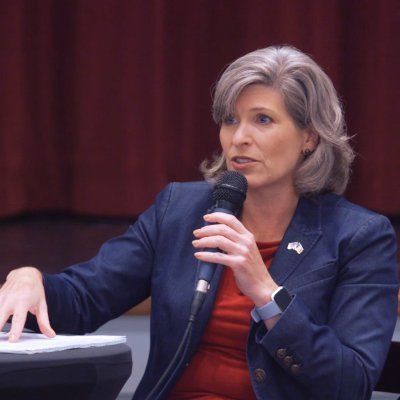
US Republican Senator Joni Ernst has joined many other lawmakers calling on President Joe Biden to leave the Vienna nuclear negotiations with Iran.

US Republican Senator Joni Ernst has joined many other lawmakers calling on President Joe Biden to leave the Vienna nuclear negotiations with Iran.
In a tweet on Thursday, Ernst said that “the Iranian regime’s funding of terrorism and hatred of the United States has not changed”.
Reviving the 2015 Iran nuclear deal remains uncertain despite earlier progress US officials reiterate, as the issue of delisting Iran's Revolutionary Guard (IRGC) as a terrorist organization remains unresolved.
Earlier, White House national security adviser Jake Sullivan said, "We've made progress over the course of the last several weeks. There are still some issues left", adding that whether there would be a closure or not was unclear.
The number of lawmakers and former officials from both sides of the isle who are urging the Biden administration to walk out of the talks has been growing in recent days.
Spearheading the efforts are Republican lawmakers who have issued numerous statements and letters to stop Washington from removing the IRGC from the US list of foreign terrorist organizations in the framework of the new agreement.
They say the IRGC is a terrorist organization that is not going to change its ways and stop destabilizing the region, and a nuclear deal with the Islamic Republic that lifts sanctions would simply release money for Tehran to support its proxy militants in the region.
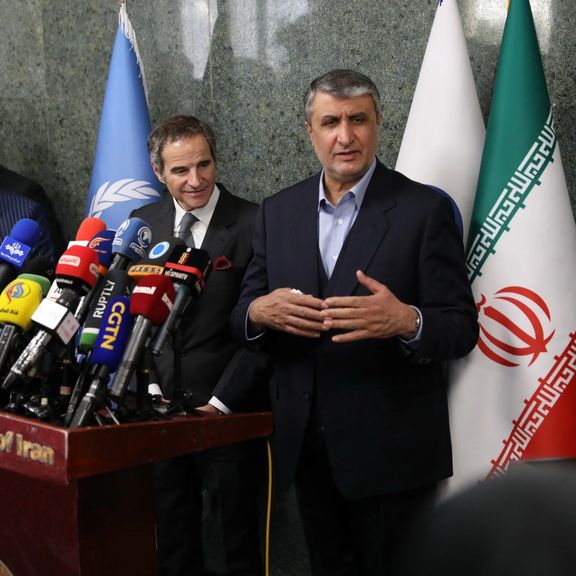
The Atomic Energy Organization of Iran says the country hasn’t tied the activities of its atomic program to the ongoing Vienna talks aimed at reviving the 2015 nuclear deal.
AEOI head Mohammad Eslami said on Wednesday that the Islamic Republic is carrying out its operations in the nuclear field according to its plans.
Eslami also stressed that the US needs to take political decisions to return to their commitments under the Joint Comprehensive Plan of Action (JCPOA), as the nuclear accord is officially known.
“There is no question regarding [Iran’s] return to its commitments under the deal as Tehran fully fulfilled its obligations, while the other side did not keep its end of the bargain,” he said.
“If they want to fulfill their obligations fully, we will take action in accordance with their measures and will reach an agreement,” Eslami added.
Iran’s nuclear chief also announced that on Iran’s National Nuclear Technology Day, on April 9, the country will unveil its "Comprehensive Strategic Development Document for the Nuclear Industry,” along with its latest nuclear-related achievements in the fields of health, agriculture and food irradiation.
Eslami didn’t mention whether Tehran had provided answers to the International Atomic Energy Agency (IAEA) on issues raised by the UN agency in a November 2021 report, including regarding concealed nuclear sites and traces of illicit nuclear material.
Following a visit by IAEA Director General Rafael Grossi to Iran earlier this month, Tehran agreed to provide written explanations to clarify the issues regarding three sites no later than March 20, 2022.
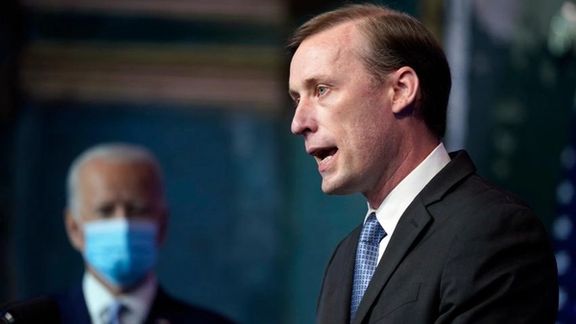
Reviving the 2015 Iran nuclear deal remains uncertain despite earlier progress US officials reiterate, as the issue of delisting Iran's IRGC remains unresolved.
"We've made progress over the course of the last several weeks. There are still some issues left," White House national security adviser Jake Sullivan said Wednesday, adding that whether there would be a closure or not was unclear.
Sulivan insisted that the United States is diligently seeking to "put Iran's nuclear program back in a box" but that offers little assurance to those who are wary of US concessions to make a deal possible.
The uncertainty highlighted by US officials appear to be mainly rooted in the impasse over Iran's insistence that Washington should remove the Revolutionary Guards (IRGC) from its list of Foreign Terrorist Organization (FTO).
As inking a new nuclear agreement gets delayed, opposition becomes more vocal in Washington. Republicans and some Democrats have been expressing strong objections, especially against delisting the IRGC. Particularly worrisome for the administration could be serious reservations Bob Menendez, the Chairman of the Senate foreign Relations Committee has expressed.
State Department Spokesperson Ned Price also appeared uncertain Tuesday and said despite optimism in recent weeks, restoration of the 2015 nuclear deal, Joint Comprehensive Plan of Action (JCPOA) remained uncertain.
The onus is on Iran whether it is willing to accept the mutual return of the US and Iran to compliance with the deal, he said. Iran's Foreign Minister Hossein Amir-Abdollahian similarly said on Wednesday that the onus is on the US to show good faith and make the restoration of the JCPOA possible. He has repeatedly accused the US of "demanding too much" and bringing "illogical and unjustifiable demands" to the negotiation table.
The White House Spokeswoman Jen Psaki said Thursday that there was "ongoing negotiation" over delisting the IRGC. "I would just note that the status quo where we stand has done nothing to make us safer in any regard. In fact, the Islamic Revolutionary Guard has only been strengthened," she said.
The delisting of the IRGC appears to be Iran's last condition for signing a deal after nearly a year of intense negotiations. Iranian officials have so far refrained from directly naming the delisting of the IRGC as Iran's deal breaker demand and only refer to it as "Iran's redlines" in their public statements, presumably to raise less controversy abroad.
Axios Middle East correspondent Barak David in an article on Wednesday claimed that Iranian officials have not agreed to publicly commit to de-escalation in the region as a condition for delisting the IRGC.
According to David's sources, two US and one Israeli official, the Iranian side has not agreed to a public declaration of its commitment to change its behavior in the region and want instead to provide a private side-letter to the US.
The issue of delisting IRGC has also raised strong opposition by Israel. Prime Minister Naftali Bennet and Foreign Minister Yair Lapid issued a statement on March 18 criticizing what they said was US intentions to delist the IRGC.
Bennett and Lapid appealed to the United States not to remove the top military force of its archfoe, which it considers as a threat to Israel's existence, from the Foreign Terrorist Organizations list.
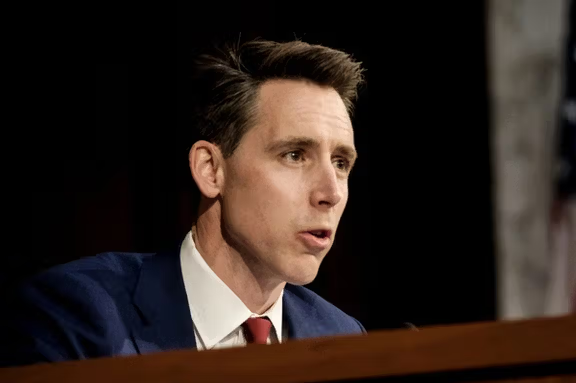
As United States Republicans campaign against Washington’s diplomacy with Iran, Senator Josh Hawley has launched a broadside against President Joe Biden.
The Missouri Senator and close ally of former President Donald Trump told Iran International’s correspondent Tuesday that Biden’s ideas were “insane.” Hawley said the president was preparing to exempt Russia from Ukraine sanctions and to remove Iran’s Revolutionary Guards from the US list of ‘foreign terrorist organizations.’
Hawley, an opponent of the 2015 nuclear deal, which Iran and world powers are working to revive, said the US should not buy Iranian oil should sanctions be eased. “I think the idea that we would be getting energy from Iranians – even indirectly – is insane,” he said. “What the president needs to do is to open our own energy productions.”
About a provision in the new deal that would enable Russia to get billions of dollars for building reactors in Bushehr nuclear plant, Hawley said: “Oh gosh! It sounds awful. It couldn’t be worse. It just couldn’t possibly be worse.”
Hawley said that reapplying the 2015 deal, which Trump left in 2018 prompting an expansion in the Iran nuclear program, typified Biden’s approach: “With all due respect, the president is the guy who’s managed to lose two sovereign nations in six months: the Afghanistan debacle and Ukraine, and now he's out there trying to find ways to enable Iran.”
“What does he [Biden] want?” Hawley asked, adding, “What’s next? Is China gonna invade Taiwan? … Anyway this is crazy”.
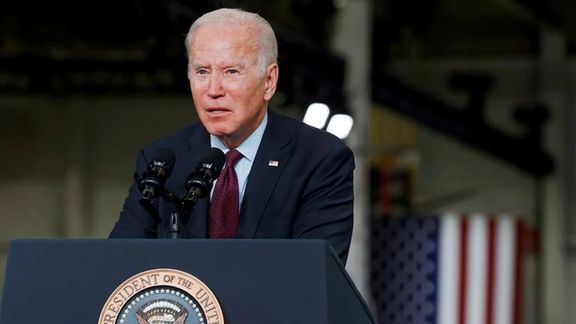
Pressure is growing on the Biden Administration to walk away from Vienna talks after reports that Iran's IRGC may be removed from the US terror designation.
Opponents of the restoration of the 2015 nuclear agreement, Joint Comprehensive Plan of Action (JCPOA), believe that restoring the JCPOA at the cost of delisting the IRGC without curbing Iran's ballistic missile program is too high a price for the United States to pay to bring Iran back to compliance with the deal.
In a statement Tuesday after a briefing with from the State Department’s main JCPOA negotiator Rob Malley, Senior Republican Senator Jim Risch called the reports out of Vienna "unsettling at best" and strongly criticized the Biden administration for pursuing a deal with Iran despite objections from US partners in the Middle East and urged the administration to walk away from the talks.
“A deal that provides $90-$130 billion in sanctions relief, relieves sanctions against Iran’s worst terror and human rights offenders, and delists the IRGC does not support our national security interests. Worse, this deal could enable Putin to continue to build out his nuclear arsenal and benefit financially in the midst of his assault against Ukraine. The administration should walk away,” he said in his statement.
Eighty-six Republican Representatives have signed a letter to Secretary of State Antony Blinken to express their opposition to the Biden administration's possible move to delist the IRGC. "We are united in strong opposition to any move to legitimize the IRGC's reckless, destabilizing, and anti-Semitic actions throughout the Middle East," the letter says.
"The President is the guy who’s managed to lose two sovereign nations in 6 months: The Afghanistan debacle and Ukraine, and now he's out there to find ways to enable Iran," Republican Senator Josh Hawley told Iran International correspondent in Washington on Tuesday.
Democratic Senator Tim Kaine, however, believes relations with Iran could become normal. "If we have arrangements [with Iran] that force us to communicate, we could expect trust to be rebuilt & eventually get to normalcy. There's nothing unrealistic about it: Japan & Germany are among our closest allies, but we were at war with them," he told Iran International.
The Senate Democratic Party whip Dick Durbin also cautiously defended the administration. He told Iran International’s correspondent Arash Aalaei on Monday that “the premise” of reviving the 2015 deal, the JCPOA (Joint Comprehensive Plan of Actions) was “sound to stop Iran from becoming a nuclear power.” This, Durbin said was “obviously in the best interests of regional and world peace.”
Answering a question about the concerns of other regional states, particularly Israel, which is believed to have nuclear weapons, Durbin reiterated that peace required “a credible, enforceable plan to stop Iran from developing nuclear weapons,” which he said would be a “threat to every nation in the region…including Israel.”
"The onus is on Tehran to make difficult decisions that it might consider difficult, but we have negotiated for the better part of a year – of course, indirectly through our allies and partners – in good faith in a constructive manner to get us to this point. We are still at a point where if those decisions are made, we could reach a mutual return to compliance very soon, but it will take some decisions," the State Department Spokesman Ned Price said at his daily briefing Tuesday.
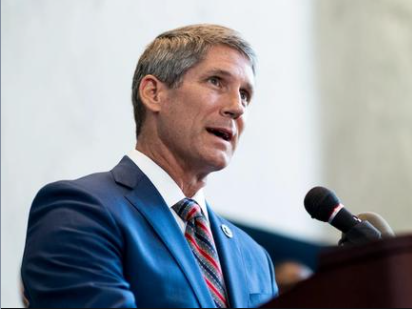
More Republican lawmakers have raised objections to removing Iran’s Revolutionary Guards (IRGC) from the US list of foreign terrorist organizations (FTO).
Representative Scott Franklin – who spearheaded a letter expressing opposition to the Biden administration’s possible move – reiterated on Tuesday that the IRGC is a chief sponsor of terrorism in the world today.
In the letter, Franklin and 86 of his colleagues urged Secretary of State Antony Blinken not to remove the IRGC from the list, saying the IRGC "is one of the most dangerous terrorist groups in the world today. Through its sponsorship of terrorism, the IRGC is responsible for the deaths of countless innocent people and at least 600 US troops during the occupation of Iraq”.
They said they are deeply concerned about reports that the administration intends to remove the IRGC terrorist designation “within the confines of a new Iran Nuclear Deal”, adding “We are united in strong opposition to any move to legitimize the IRGC’s reckless, destabilizing, and anti-Semitic actions throughout the Middle East”.
Israel’s prime minister and foreign minister have called on Washington to keep IRGC on the list, saying the IRGC is "a terrorist organization that has murdered thousands of people, including Americans”.
Iranian officials have been publicly raising the issue since at least November, saying a ‘good deal’ would mean lifting sanctions on the Revolutionary Guard.
Such a step would reverse former President Donald Trump's 2019 blacklisting of the group, the first time the US had formally labeled part of another sovereign government as a terrorist group.